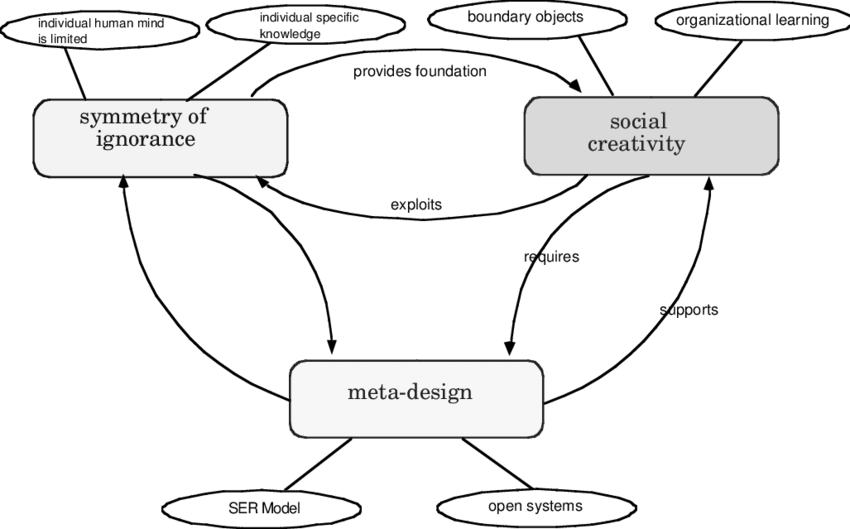Introduction
The Symmetry of Ignorance is a compelling mental model that highlights our tendency to make irrational decisions when faced with limited information or when all parties involved possess equal ignorance on a subject. This concept emphasizes the importance of acknowledging our own lack of knowledge and understanding and how it impacts decision-making processes. Grounded in human psychology, the Symmetry of Ignorance is prevalent in various aspects of our lives, influencing personal choices, business strategies, and even public policy-making. By delving into the psychological biases and underpinnings associated with this model, we can improve our decision-making capabilities and avoid falling into the trap of making uninformed and detrimental choices.
The Symmetry of Ignorance in Action: Examples from Various Contexts
- Personal Life Decisions: Imagine a couple trying to decide on an investment opportunity, both possessing minimal knowledge about the investment market. In this scenario, the Symmetry of Ignorance emerges as neither party holds an informational advantage over the other. Rather than seeking external expertise or conducting thorough research, the couple may make a decision based on limited information, leading to suboptimal outcomes.
- Business Scenarios: In the realm of business, the Symmetry of Ignorance can manifest when competitors lack crucial information about each other’s strategies or market dynamics. This lack of knowledge can lead to a stalemate, with companies making decisions based on assumptions or incomplete data. The result is a potentially inefficient allocation of resources and missed opportunities for growth.
- Public Policy-Making: Public policy decisions can also be influenced by the Symmetry of Ignorance. When policymakers are equally uninformed about the potential impacts of a particular policy, they may make decisions based on ideologies, political expediency, or the opinions of vocal interest groups rather than a comprehensive understanding of the issue at hand. This can lead to ineffective policies that fail to address the root causes of societal challenges.
Mental Biases and Underpinnings
Several mental biases contribute to the occurrence of the Symmetry of Ignorance. One significant bias is the Illusion of Knowledge, where individuals mistakenly believe they possess more information or understanding than they actually do. This illusion can prevent individuals from seeking additional information or expertise, leading to uninformed decisions.
The Dunning-Kruger Effect is another contributing factor to the Symmetry of Ignorance. It highlights how individuals with limited knowledge or skills tend to overestimate their competence, while those with more expertise may underestimate their abilities. This bias can perpetuate uninformed decision-making, as individuals may lack awareness of their own ignorance.
Moreover, the Confirmation Bias plays a role in the Symmetry of Ignorance, as people tend to seek and interpret information that confirms their existing beliefs, disregarding contradictory evidence. This bias can lead to the perpetuation of uninformed decisions, as individuals selectively consider information that aligns with their preconceived notions.
Identifying and Mitigating the Symmetry of Ignorance
To avoid succumbing to the Symmetry of Ignorance, it is essential to develop self-awareness and implement strategies for more objective decision-making. Here are practical tips:
- Embrace Intellectual Humility: Recognize and accept the limits of your knowledge. Be open to the fact that there may be information or perspectives you are unaware of and actively seek out additional information before making important decisions.
- Seek Diverse Perspectives: Engage in dialogue with individuals who have different expertise, backgrounds, or viewpoints. This can provide valuable insights and challenge your assumptions, helping to broaden your understanding of complex issues.
- Foster a Culture of Learning: Encourage continuous learning and professional development within your personal and professional life. Cultivate a habit of seeking out new information, exploring diverse sources, and engaging in critical thinking to expand your knowledge and minimize the Symmetry of Ignorance.
Conclusion
The Symmetry of Ignorance highlights the risks of making uninformed decisions when faced with limited knowledge or when all parties involved possess equal ignorance. By understanding the psychological biases that contribute to this fallacy and implementing strategies for more objective decision-making, we can avoid the pitfalls of the Symmetry of Ignorance. Embracing intellectual humility, seeking diverse perspectives, and fostering a culture of learning enable us to make more informed choices that align with our best interests and contribute to positive outcomes. Awareness and active avoidance of this mental trap are crucial for achieving better decision-making and personal growth.
